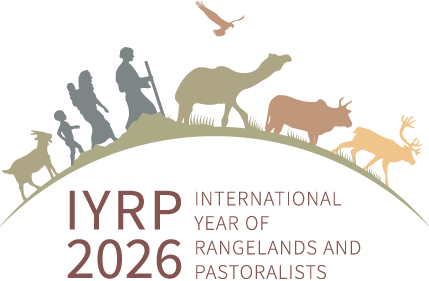The UNFCCC is an international treaty to combat "dangerous human interference with the climate system”, in part by stabilising greenhouse gas concentrations in the atmosphere. It was signed by 154 states at the UN Conference on Environment and Development (UNCED) or “Earth Summit” in Rio de Janeiro in June 1992. It entered into force in March 1994. The treaty calls for ongoing scientific research and regular meetings, negotiations and policy agreements designed to allow ecosystems to adapt naturally to climate change, to ensure that food production is not threatened and to enable sustainable economic development. The Convention now has 197 Parties and is the parent treaty of the 2015 Paris Agreement, the main aim of which is to keep the global average temperature rise this century as close as possible to 1.5 °C above pre-industrial levels.
A workshop on improved livestock management systems, including agropastoral systems and others, was held in conjunction with the UNFCCC Climate Dialogues 2020. Experts from Parties, international organisations, the private sector, research organisations, civil society and constituted bodies under the Convention as well as farmers presented experiences and challenges related to improving livestock management systems and discussed the potential, benefits and synergies with multiple objectives involved in improving such systems. See the link to the workshop report below.
At the UNFCCC’s Africa Climate Week (ACW) on 26–29 Sept 2021, the International Institute for Environment & Development (IIED) hosted a side event on "Climate change and drylands – valuing variability for climate resilient development” in the Thematic Track “Integrated approaches for climate resilient development”. The animated video on “Pastoralism is the future” was shown. Inputs were made about how pastoralists use climatic and environmental variability for sustainable production in the drylands and about experiences in implementing devolved climate finance mechanisms in African drylands.
At the UN Climate Change Conference (COP26) in Nov 2021, several pastoralists from Regional IYRP Support Groups (RISGs) - coordinated by the World Alliance of Mobile Indigenous Peoples & Pastoralists (WAMIP) and the International Land Coalition (ILC) Rangeland Initiative Global - highlighted the importance of pastoral systems.
At COP 27 on 12 November 2022, SNV Netherlands, EDF (Environmental Defense Fund), CELEP and IYRP organised a session on "Pastoralism and rangeland restoration: promising solutions to benefit our planet and people" in the Food Systems Pavilion (see link below). Maryam Niamir-Fuller, co-chair of the IYRP Global Coordination Group, gave a keynote speech in this session (see the text of her presentations under documents below). A recording of all sessions in the Food Systems Pavilion on 12 November is given in a link below.


